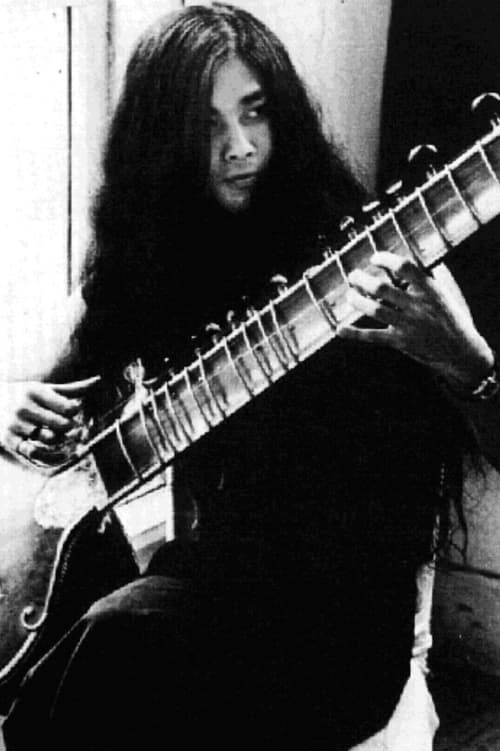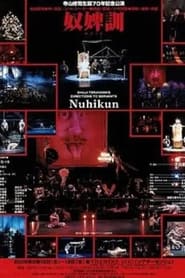detail profile j a seazer

J.A. Seazer
J.A. Caesar
atau dikenal sebagai
Riwayat Hidup
Takaaki Terahara (寺原 孝明 Terahara Takaaki), known professionally as Julius Arnest "J.
A.
" Caesar (born 6 October 1948), is a Japanese film and theater music composer.
Seazer enjoyed popularity among students in Japan during the 1960s, and worked closely with director Shuji Terayama and his theater Tenjo Sajiki until Terayama's death (besides incidental music, he wrote a few full-fledged rock operas for Tenjo Sajiki, including Shintokumaru).
He is a member of the theatrical company Experimental Laboratory of Theatre ◎ Universal Gravitation (演劇実験室◎万有引力 Engeki-Jikkenshitsu Ban'yū Inryoku), better known as just Ban'yū Inryoku.
He gained more mainstream attention for his songs composed for the anime Revolutionary Girl Utena, and has also composed the score to the animated film adaptation of Suehiro Maruo's manga Mr.
Arashi's Amazing Freak Show (also known as Midori or Shojo-tsubaki).
-- Wikipedia
Info Pribadi
Peran Yang Di Mainkan J.A. Seazer
 The documentary to find the true...
The documentary to find the true...Where is Tomorrow, Shuji Terayama 2017
The documentary to find the "true Shuji Terayama".
 In a loose retelling of the...
In a loose retelling of the...Revolutionary Girl Utena: The Movie 1999
In a loose retelling of the Revolutionary Girl Utena TV series, Utena Tenjou arrives at Ohtori Academy, only to be immediately swept up in a series of duels for the hand of her classmate Anthy Himemiya and the power she supposedly holds. At the same time, Utena reunites with Touga Kiryuu, a friend from her childhood who seems to know the secrets behind the duels. Utena must discover those secrets for herself, before the power that rules Ohtori claims her and her friends, new and old.
 A girl named O loves a...
A girl named O loves a...Fruits of Passion 1981
A girl named O loves a rich, and much older man. She is subjected to a variety of humiliating experiences to prove her unconditional obedience to him in a Chinese brothel. A poor boy sees her and falls in love with her. To get the money needed to sleep with her, he takes part in rebellious acts.
 Akira is haunted by a bouncing...
Akira is haunted by a bouncing...Grass Labyrinth 1979
Akira is haunted by a "bouncing ball" song that he remembers his mother singing when he was a small child, and now on the verge of a sexually active adulthood, he wants to find the origins of the song. The young man ostensibly wanders into a time-warp in which aspects from his childhood and adulthood mix together. In this never-never land he comes across a beautiful woman/witch who is lost inside the labyrinth of her mansion, just as the young man is lost in the labyrinth of time — and on some levels, perhaps the labyrinth of his subconscious.
 A man claiming to be the...
A man claiming to be the...Directions to Servants 1978
A man claiming to be the heir of an estate in northern japan finds himself at the doors of his mansion, only to find it overrun by servants and maids playing pretend as master or mistress, while the real master is nowhere to be found. As he makes his way down the many rooms of the mansion and witnesses the staff's strange antics, he gradually loses his own role and sense of identity. In this subversive play performed by Tenjo Sajiki, the spectator is asked to question their own role as hierarchical structures are reversed and walls between character and actor, actor and audience gradually break down.
 After losing her parents young flower...
After losing her parents young flower... A surreal isolated village sees its...
A surreal isolated village sees its... In the midst of a match...
In the midst of a match... As a family goes on with...
As a family goes on with... Visions of characters by the seaside...
Visions of characters by the seaside... A director faces creative block while...
A director faces creative block while... An experimental psychedelic odyssey through Japanese...
An experimental psychedelic odyssey through Japanese... In a Japanese colony children overthrow...
In a Japanese colony children overthrow...